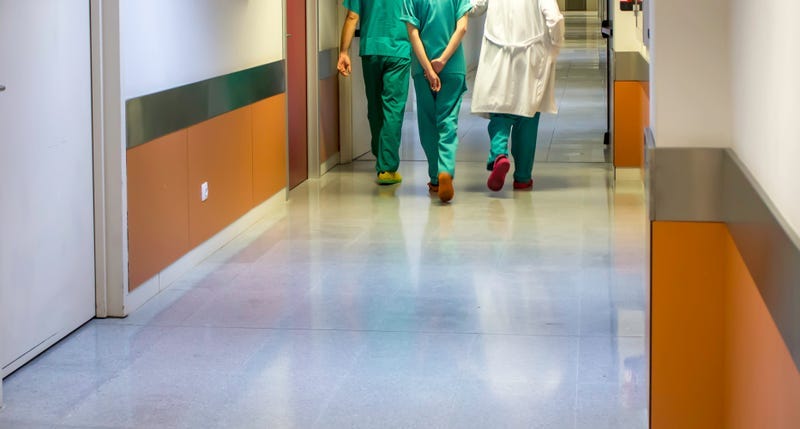
DEARBORN (WWJ) -- Federal healthcare workers comprised of nurses, doctors and respiratory therapists arrived at Beaumont Dearborn on Tuesday to help in the latest surge of COVID-19 amidst staffing shortages.
Upon arrival, the team of 22 healthcare workers got their credentials and will reconvene Wednesday for training.

The team will officially start treating patients on Friday and remain onsite for 30 days.
Spectrum Health in Grand Rapids is also receiving their own team of 22 federal healthcare workers.
The Michigan Department of Health and Human Services announced Nov. 22 that the two hospitals would each receive a medical team to support their staff following the request for assistance from the federal government by Gov. Gretchen Whitmer.
“I’m grateful that the federal government has granted our request to provide much-needed relief to the health care personnel who have remained on the frontlines of this pandemic,” Whitmer said, per a press release.
This additional medical help comes at a time where there is not only a virus surge, but the Centers for Disease Control and Prevention has declared the variant, Omicron, to be of concern; however, there are currently no confirmed cases of the varaint in Michigan.
There appears to be evidence that it is more transmissible, based on preliminary information.
“It’s still early, and there is much that we need to learn about the Omicron variant,” said Dr. Alexis Travis, senior deputy director of MDHHS’s Public Health Administration. “We know what protection measures are needed to reduce the spread of COVID and prevent additional mutations of the virus. We need Michiganders to continue to do their part to keep themselves and their loved ones safe.”
In addition to getting vaccinated and wearing masks, there are other things people can do to protect themselves and their loved ones, including getting tested for COVID-19 before gatherings; physically distancing from others and crowds; frequently washing hands; covering mouth and nose with bent elbow or tissue when sneezing or coughing and self-isolating until recovery if you develop symptoms or test positive for COVID-19.
Michigan is also under a public health advisory, issued by MDHHS that regardless of vaccination status, Michiganders are advised to wear a mask in indoor public settings.


